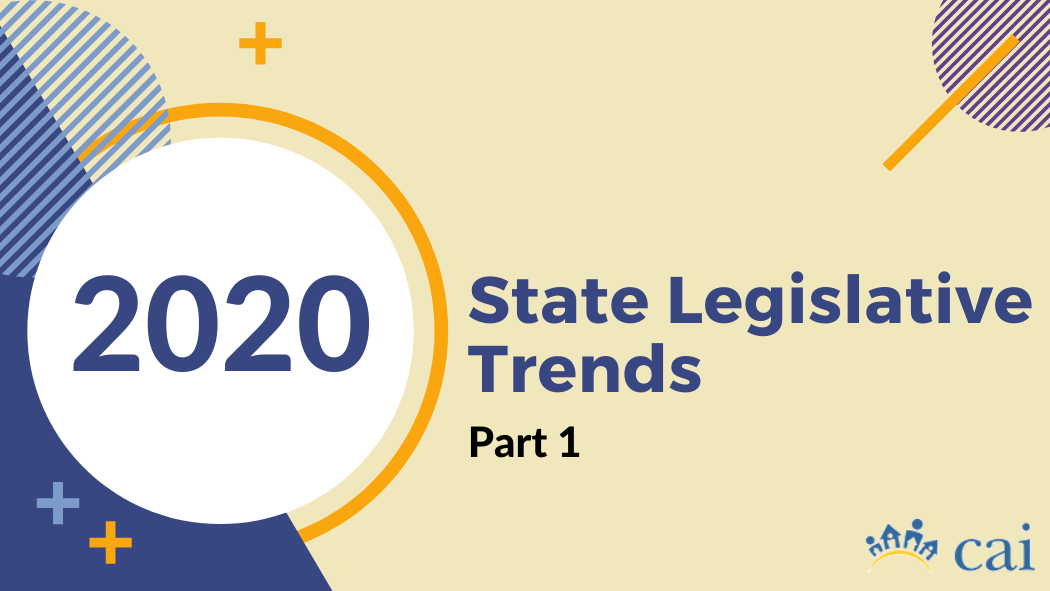As of today, 39 state legislatures have convened, and CAI is tracking more than 1,000 bills impacting community associations. Based on the bills that have been introduced this year and trends from last year, we anticipate our advocacy efforts will focus on several priorities, including affordable housing, construction defect warranties, reserve studies and funding, rentals (long and short-term), and covenants related to electric vehicle charging stations, political signs, solar power, and more.
Today, we’ll discuss affordable housing, construction defect warranties, and reserve funding in community associations. Next week, we’ll discuss the other trends, so be sure to subscribe to our blog to stay up to date.
Affordable Housing: As rising rents and home prices continue to outpace the rise in income, federal, state, and local governments are grappling with how to address the affordable housing crisis. There are several policies being considered throughout the country that impact the community association housing model, including those addressing accessory dwelling units (ADUs)—also known as granny flats, in-law suites, and lofts—and single-family zoning. In 2019, Oregon passed two pieces of important legislation:
- Prohibits local municipal ordinances from restricting the development of ADUs on a single-family property
- A mandate to change local ordinances for most cities to allow multi-family housing development on land zoned for single-family housing
In 2020, Washington state and Hawaii have legislative proposals that would prohibit local ordinances from restricting development of ADUs. CAI is in the process of developing a policy on these issues. In the meantime, CAI’s policy on self-governance—allowing a community association to determine what is best for their community by a community vote to establish a related covenant—applies.
Construction Defects: Under the guise of eliminating barriers to developing affordable housing, legislatures in Nebraska, Utah, and Washington state are faced with proposals to reduce the statute of limitations for community associations to file a warranty claim for a construction defect. CAI’s public policy is very strong on this front. It balances the interests of developers, including a right-to-cure and a reasonable approach for community associations to work with the developer, while preserving warranty protections for associations when there is a legitimate construction deficiency.
Reserve Studies & Funding: As buildings age and communities face often unexpected capital repairs and replacement, some communities find themselves ill-prepared financially. Unexpected projects and underfunded reserves have led to special assessments that may create a financial hardship for residents. Legislation to address this potential hardship was introduced in Maryland and Oklahoma with other states considering it too. The reserves legislation in Maryland and Oklahoma mandate a reserve plan, regular updates, and funding. Unfortunately, the legislative language in both would likely have an immediate and unintended financial hardship on residents living in community associations in these states. CAI legislative action committees are working to find balance in the legislative language so it accomplishes the intent but doesn’t create financial hardships.
Follow legislation in your state by clicking here.



